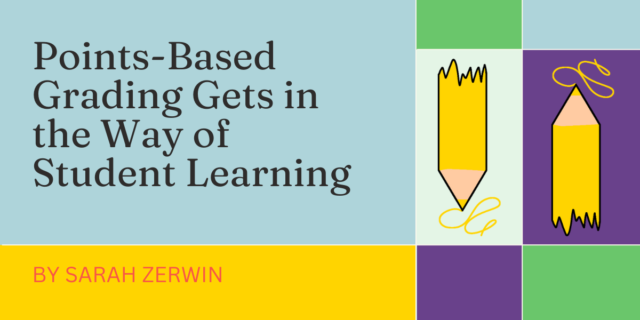
Barry Lane's best-selling After THE END helped teachers see revision in a whole new light and inspired a generation of students to not only embrace revision but to realize that writing is revision. Now, the long-awaited second edition keeps Barry's humorous and endearing tone while updating his ideas and lessons for teaching writing with heart. In today's post adapted from the book, Barry claims that we are all investigative reporters at heart, and that writing is a lot like a potato plant. Read more to find out why.
Digging for Details (And Potatoes)
by Barry Lane
When I teach writing, I teach discovery. Techniques such as freewriting, brainstorming, and webbing are meaningless if we don’t continue to find ways to tune students’ ears to the surprises that await them. When I think of writing, I think of a potato plant. Most of our writing is simply the leaves and stem of the plant, but as we revise more and more we dig for the right potato. A large part of writing is simply trusting your own instincts and asking questions that will help you dig deep enough.
A student in my freshman composition class wrote an essay about the difference between New Jersey and Vermont. The first few pages were what my colleagues cynically refer to as a “seesaw essay.” It had lines like “New Jersey has pavement, Vermont has trees; New Jersey is frantic, Vermont is peaceful.” But on page 3 a meaning began to emerge with the lines: “New Jersey is my father; Vermont is my mother. They’ve been divorced for ten years.” He went on to describe how his mother was peaceful, and his father was nervous and never satisfied. His mother was like him, but his brother was like his father. Suddenly he was not describing landscapes but the most important relationships in his life. He had found his potato.
When the paper went before a writing workshop, it was easy to find where the reader’s interests lay. “When did your parents get divorced? Do they still live in New Jersey? Why did your mother move to Vermont?” Our instincts point us to meaning. We are all investigative journalists at heart, and questions are the fuel for all powerful writing. The first step in learning that writing is revision is to learn to trust our instincts—to be three-year-old children once again. This metaphor springs to mind from a time I babysat my three-year-old niece. I stole to the cupboard and discreetly snuck a piece of Halloween candy. I heard a voice call from the next room, “What you got? What you got your mouth?” Not wanting to lie, but at the same time not wanting to model eating a Reese’s Peanut Butter Cup for breakfast, I said, “Oh, nothing.” She stared at me a moment with her big blue eyes and said, “I want some.” Being the adult, I said, “You can’t have candy for breakfast.” She responded like the greatest of writers: “Why?”
After THE END, Second Edition: Teaching and Learning Creative Revision is available now
♦ ♦ ♦ ♦
 Barry Lane has taught writing in grades K–12, and authored many professional books to help teachers teach writing with joy and passion. His other books include Reviser's Toolbox, But How Do You Teach Writing? and Force Field for Good (with Colleen Mestdagh).
Barry Lane has taught writing in grades K–12, and authored many professional books to help teachers teach writing with joy and passion. His other books include Reviser's Toolbox, But How Do You Teach Writing? and Force Field for Good (with Colleen Mestdagh).


